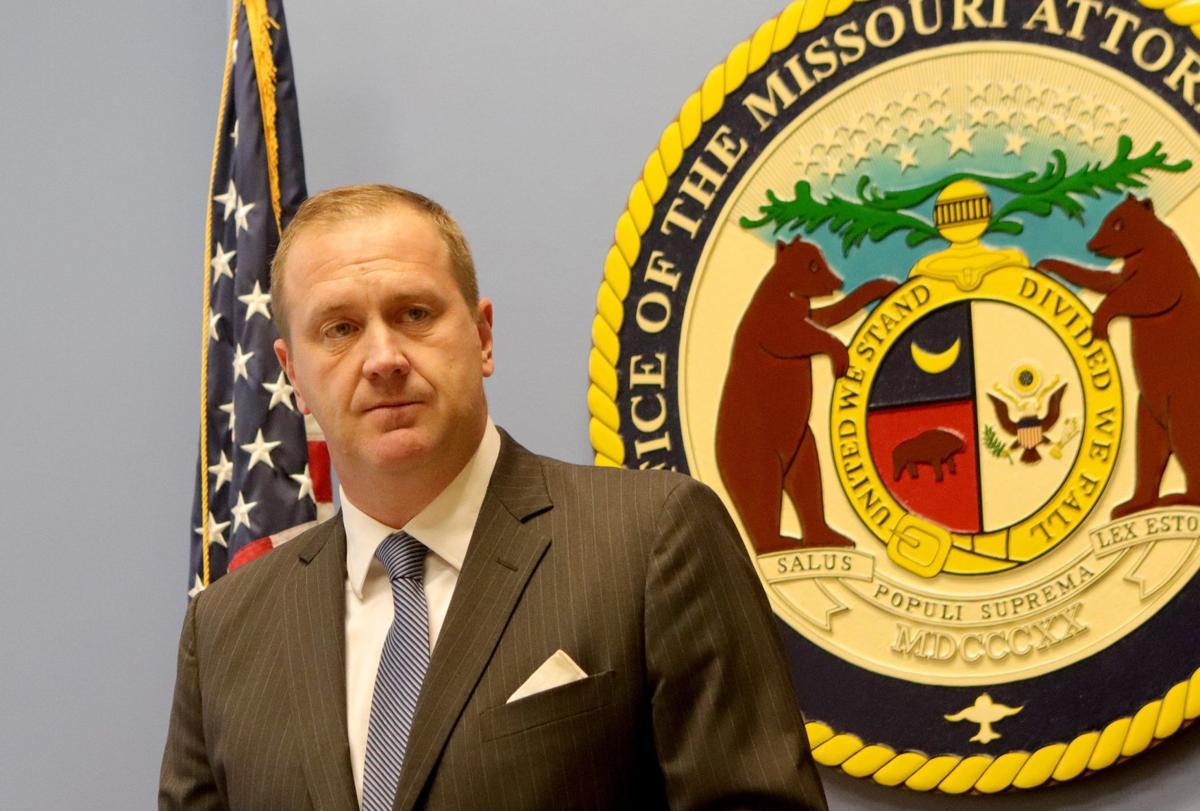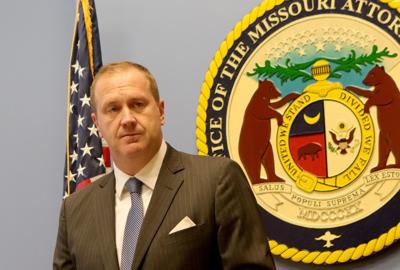When the history of the Jan. 6 insurrection against American democracy is written, the first chapter will be set in the office of Missouri Attorney General Eric Schmitt.
It was Dec. 8 at 6:11 p.m., and one of Schmitt’s top aides, Solicitor General John Sauer, was sending an email to dozens of Republican attorneys general or their staff members throughout the country asking them to sign off on supporting the lawsuit filed by the state of Texas challenging the election results in Pennsylvania, Georgia, Michigan and Wisconsin.
In short order, the U.S. Supreme Court the lawsuit as having no merit. But by simply offering a legal challenge that supported former President Donald Trump’s Big Lie that the election had been stolen from him, Schmitt and his counterparts fueled the fire of the Jan. 6 insurrection.
People are also reading…
Jon Western is going to be one of the people who writes this history. He’s a political science professor in Massachusetts. Western is studying the rise of anti-Democratic movements in Europe and the U.S. So when he saw Schmitt and other Republican attorneys general trying to overturn the election, he wanted to know the story behind such a betrayal of office.
It was the Texas lawsuit, and the amicus brief, eventually signed on to by 21 other states, that gave rise to members of Congress, including Sen. Josh Hawley, the Missouri Republican, announcing their intentions to further challenge the election results on the fateful day when the insurrectionists stormed the Capitol.
Western filed Sunshine Law requests in December with the states that signed on to Schmitt’s amicus brief. What he found, in records he obtained from North Dakota, Utah, Florida and others, is that Schmitt’s aide, Sauer, led the effort.
Missouri, a state that has long had Sunshine Law compliance issues, in part because attorneys general of both parties have failed to take the public accountability law seriously, didn’t provide Western the records, even though Sauer’s emails are prevalent in the documents he obtained from other states.
I asked Schmitt’s office why it didn’t provide the Sauer emails to Western. A spokesman said in an email that the attorney general’s office “closed certain records.” In the letter responding to Western, the attorney general cited the legal exception section of the Sunshine Law, which allows certain “confidential” records between an attorney and its public governmental body to be closed. Western can’t imagine that exception applies in this case.
Neither did several other states.
Western, it turns out, wasn’t the only person denied records that clearly exist. (He provided me the North Dakota emails, which include the ones from Sauer organizing the states to sign on to the amicus brief). Clayton attorney Mark Pedroli, founder of the Sunshine and Accountability Project, and his client, lawyer Elad Gross, filed Sunshine Law requests in January that also would have encompassed the Sauer emails, including a specific request for all correspondence related to the amicus brief. The records were not provided, nor was a suggestion that they were closed.
When Pedroli found out that Western obtained the Missouri records from another state, he called the professor, who provided him the Sauer emails. There is no doubt, Pedroli says, that the records should have been provided to him under his request.
“Imagine my surprise when I heard someone requesting the same records in North Dakota got more Missouri emails than we got from direct requests to Missouri,” Pedroli told me. “It’s a high-water mark for evasion and lawlessness when you have to go to North Dakota to get Missouri records.”
The existence of the Missouri records in other states’ responses to document requests raises two uncomfortable questions for Schmitt, who, like his predecessor Hawley did, is using the high profile of the office to run for the U.S. Senate: How much responsibility should he bear for planting the seeds of insurrection, and why is he covering up his role?
Western is mostly concerned with the first question. The records themselves show, he says, that the attorneys general knew they were engaged in a political fraud, and that’s damaging for the future of democracy. In one email, for instance, an aide to North Dakota Attorney General Wayne Stenehjem makes it clear the amicus brief has little basis in law.
“The decision whether we join this amicus is more political than it is legal,” wrote the aide.
That’s what worries Western. “You have the leading law enforcement officers in these states promulgating a fiction, and knowingly so,” Western says. According to his research, at least 11 of the states that signed Schmitt’s amicus brief actually had similar election practices to the states that they were objecting to. “The attorneys general know exactly what is going on here. They know there was no widespread fraud in these states.”
The Big Lie persists because attorneys general like Schmitt gave it life.
It’s “really disturbing,” Western says, that the attorneys general would legitimize the former president’s electoral fantasy. It’s equally disturbing, Pedroli says, that, at least in Schmitt’s case, he would try to cover it up.
“The documents not only showcase Missouri’s leading role in the insurrectionist rhetoric that led to January 6th, but also demonstrate the use of state taxpayer dollars for a purely political, partisan agenda,” Pedroli says. “Their attempt to hide the records now is tantamount to an admission of guilt.”
Sen. Josh Hawley (R-MO) speaks on the Senate floor for the first time since rioters stormed the Capitol building. Hawley condemned the day's violence but also called for an investigation into “irregularities and fraud.” and vowed to continue objecting to the presidential election results.

























